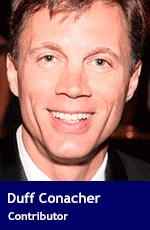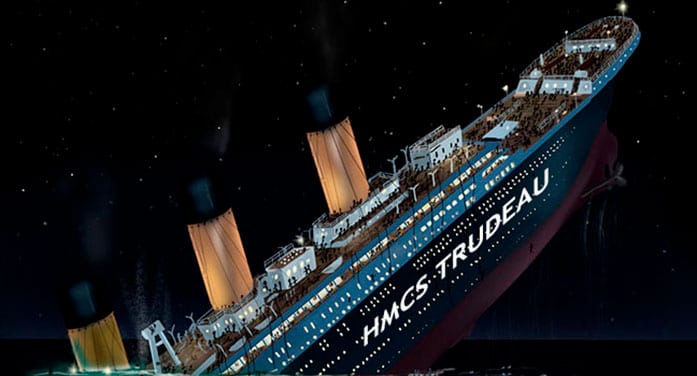 Throughout 2016, new Prime Minister Justin Trudeau and his ministers claimed repeatedly they were changing the Cabinet appointment system to ensure it was “transparent, open and merit-based.” Very unfortunately, every media outlet reported the claims without checking whether they were true.
Throughout 2016, new Prime Minister Justin Trudeau and his ministers claimed repeatedly they were changing the Cabinet appointment system to ensure it was “transparent, open and merit-based.” Very unfortunately, every media outlet reported the claims without checking whether they were true.
At the beginning of 2017, the Liberals issued an announcement saying the changes had been made, and media across Canada echoed that claim too.
For a year afterwards, the media was reluctant to admit its negligence. What the Trudeau Liberals had claimed must be true because the media had reported it as being true.
However, the evidence mounted that the Liberals were blowing smoke. First, former Ontario Liberal MPP Madeleine Meilleur admitted in spring 2017 before a House Committee that when she was considering retiring she talked with Trudeau’s then-senior adviser Gerald Butts, and his Chief of Staff Katie Telford, and asked to be appointed as a senator initially, and then as federal Commissioner of Official Languages.
FROM THE ARCHIVES: A litany of Trudeau government scandals
Her statement became so politically costly to the Trudeau Cabinet that she ended up withdrawing her candidacy.
Then, in June 2017, the Liberals made the very questionable claim that they couldn’t find replacements for the Ethics Commissioner and Commissioner of Lobbying, and so they had to re-appoint the existing commissioners for a third temporary six-month term. The opposition leaders pushed Trudeau to consult with them on appointments of these and other key watchdogs, and have a House committee review a short list of candidates, as a committee does in B.C.
However, the Liberals refused to give up control, even for those two government watchdogs whose offices were both investigating Trudeau and some of his Cabinet ministers for wrongdoing. In late November 2017, the Liberals suddenly announced they had found new commissioners. They claimed the best people they could find in Canada for Ethics Commissioner were Mario Dion, and for Lobbying Commissioner Nancy Bélanger.
It was truly unbelievable. Dion had a record of eight unethical actions in his former job as federal Integrity Commissioner, including being found guilty twice of violating whistleblowers’ rights, and of gross mismanagement in two other situations.
Bélanger hadn’t even applied for the job – she had instead applied to be Information Commissioner where she was already general counsel. She has gone on to increase secrecy in her office’s operations, let two big business directors off the hook who held fundraising events for the Liberals that Trudeau attended, while their companies were lobbying the Liberals, and made many other bad decisions.
Access to information requests have revealed the Liberals lied to opposition parties – they actually had qualified candidates for both commissioner positions by spring 2017. The Information Commissioner’s office continues to investigate the government hiding details about how Bélanger was appointed.
Through 2017-2018, the Trudeau Liberals chose a new Information Commissioner, Privacy Commissioner, Parliamentary Budget Officer, Auditor General, Chief Electoral Officer and Governor General, all key guardians of our democracy, using secretive, Cabinet-controlled processes.
As well, in the past year a whistleblower has disclosed internal government emails showing the Trudeau Liberals check not only with Cabinet ministers and MPs, but also party members, before making decisions about judicial appointments. It’s another politicized process that raises questions about the impartiality of the judges they have appointed (past governments likely did the same, but evidence proving that has never been disclosed).
Most recently, after Governor General Julie Payette resigned, Trudeau again claimed his appointment process was merit-based. However, his own minister Dominic LeBlanc had the day before admitted that Payette’s vetting was not strong enough, and it was revealed Cabinet had not even checked her past work record.
What are the lessons from Trudeau’s scandalous appointments record? First, the media should not report any politician’s claims without checking them. Only about 20 percent of voters keep up with news, and only 10 percent of those people read beyond the headlines, so if a media outlet’s headline unquestioningly reports a politician’s false claim, it helps mislead voters.
If the media had questioned the Trudeau Cabinet’s appointments claims and reported how false they were, very likely the Cabinet would have been forced to establish an actually open and merit-based process.
Secondly, the media should regularly cover the secrecy concerning any claim made by any politician. The secrecy is the story, and if the media doesn’t cover it, they are helping with the cover-up.
Finally, no one involved in law enforcement or watching over politicians, lobbyists or government institutions can be appointed by the ruling party Cabinet alone, especially watchdogs who enforce laws that apply to Cabinet. Cabinet ministers are biased, and when they control such appointments it dangerously undermines our democracy and fair law enforcement.
Fully independent commissions need to be established across Canada to do public, merit-based searches for a short list of qualified candidates, and then a multi-party committee should be required to choose from that list.
Duff Conacher is co-founder of Democracy Watch, and a Ph.D. student in law at the University of Ottawa
Duff is one of our Thought Leaders. Why aren’t you?
For interview requests, click here. You must be a Troy Media Marketplace media subscriber to access our Sourcebook.
The views, opinions and positions expressed by columnists and contributors are the author’s alone. They do not inherently or expressly reflect the views, opinions and/or positions of our publication.
COMMUNITY NEWS OUTLET ACTION PLAN!
WEBSITE HOSTING AND ALL TROY MEDIA EDITORIAL CONTENT POSTED TO YOUR SITE DAILY FOR ONLY $129.95 PER MONTH.
Limited time offer: Get your first 2 months FREE! Click here for details

